The Impact of Sleep Deprivation on Your Health : What Happens When You Don’t Get Enough Z’s?

The Impact of Sleep Deprivation on Your Health : What Happens When You Don’t Get Enough Z’s?
The Alarming Consequences of Sleep Deprivation : Understanding the effects on your Physical and Mental Health.
We’ve all been there right, staying up late to finish a project, binge-watching a new show, or simply scrolling through social media before bed. However, while staying up late may seem harmless it can actually have serious consequences for our health. Sleep deprivation is a growing concern in today’s fast-paced world with many people struggling to get the recommended 7-9 hours of sleep each night. But what exactly happens to our bodies and minds when we don’t get enough z’s?
Sleep is a vital component of our health and well-being. It helps us recharge, refresh and rejuvenate our bodies, allowing us to tackle each new day with energy and focus. But what happens when sleep becomes a scarce commodity? The science behind sleep is complex, but research has shown that sleep deprivation can have serious and far-reaching consequences for our physical and mental health. From increased risk of chronic conditions like obesity, diabetes, heart disease, to heightened levels of anxiety and depression. The impact of sleep deprivation on our health is both profound and alarming.
In this article, we’ll explore the science of sleep, the impact of sleep deprivation on our bodies and minds, and the factors that contribute to this growing problem. We’ll also provide tips for improving sleep quality, as well as exploring the root causes of sleep deprivation. Whether you’re a student, a working professional, or simply someone looking to improve your health and well-being, this article is a must-read. So let’s delve into the world of sleep and discover the surprising and sometimes frightening consequences of not getting enough z’s.
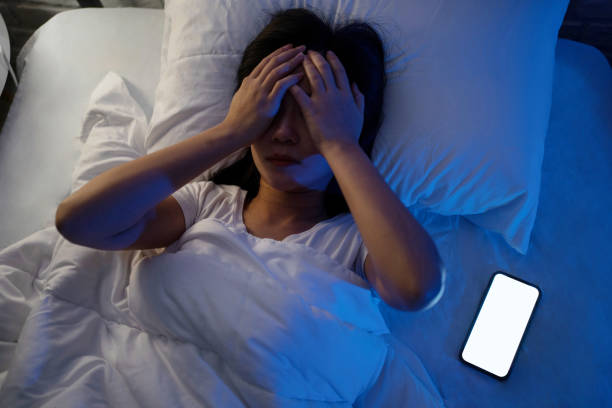
Science of sleep
Sleep is a vital aspect of our overall health and wellbeing. It is during sleep that our bodies and minds undergo important process that help us function at our best. however , many people are not aware of the intricacies of sleep and how it impacts our health. In this article, we’ll explore the science behind sleep and the consequences of sleep deprivation on both our physical and mental health.
The sleep cycle is comprised of two main stages : rapid eye movement (REM) sleep and non-REM sleep. During non-REM sleep, our bodies are undergoing important repair and rejuvenation processes, while REM sleep our brains are piecing together and consolidating memories from the day. This cycle of non-REM and REM sleep occurs several times throughout the night.
One of the most critical hormones that sleep regulates is cortisol, known as the “stress hormones”. When cortisol levels are too high, it can lead to feelings of anxiety and stress. Sleep helps regulate cortisol levels, allowing us to wake up feeling calm and refreshed.
Another hormone that sleep regulates is melatonin, known as the “sleep hormone”. It helps regulate our sleep-wake cycle. When it’s bright and sunny outside, our bodies produce less melatonin, making it harder for us to fall asleep. However, when the sun goes down and our bodies produce more melatonin, it’s a sign that it’s time to get some rest. When we don’t get enough sleep, the consequences for our health can be significant. In the next section, we’ll explore the world of sleep deprivation.
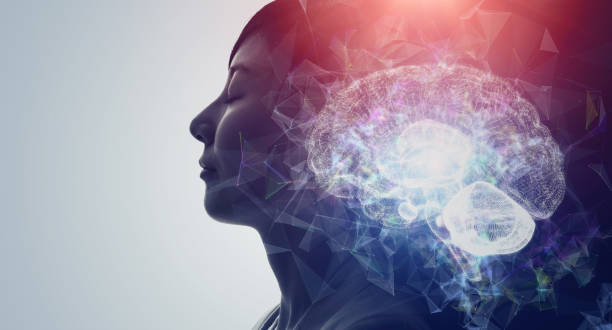
Sleep deprivation.
Sleep deprivation is a growing problem in our fast-paced world. With demanding work schedules, social commitments and endless distractions, it’s no wonder that many people struggle to get a good night’s rest. However, the consequences of sleep deprivation go far beyond feeling groggy and grumpy the next day.
Sleep deprivation has been linked to a number of physical health problems, including a weakened immune system, a higher risk of developing chronic disease such as diabetes, cardiovascular disease, obesity and even an increased risk of premature death. But it’s not just our physical health that suffers from a lack of sleep. Sleep deprivation can also have a significant impact on our mental health. People who suffer from sleep deprivation are more likely to experience depression, anxiety, and mood swings. They may also struggle with memory and concentration problems, making it difficult to complete tasks and make decisions.
There are many factors that contribute to sleep deprivations, including stress, caffeine, alcohol consumption, irregular sleep patterns and even certain medications. However, one of the main culprits behind sleep deprivation is technology. The blue light emitted by our phones, laptops and televisions can interfere with the production of melatonin, making it difficult to fall asleep.
You might think that sleep deprivation is not as serious as we think but do you know sleep deprivation is not only associated with physical health but also mental health problems.
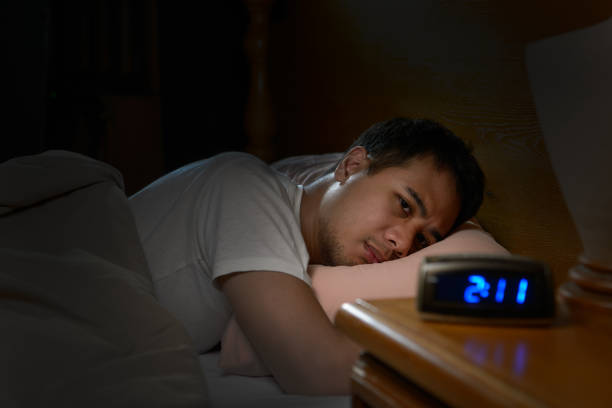
Physical and Mental Health problems associated with Sleep Deprivation
As mentioned earlier, sleep deprivation has a significant impact on both our physical and mental health. Let’s take a closer look at the specific health problems associated with sleep deprivation :
Physical Health :
- Weakened Immune System : Sleep is crucial for a healthy immune system. During sleep, our bodies produce cytokines, which helps fight off infections. When we don’t get enough sleep our immune system becomes weak, making us more susceptible to illness and disease.
- Chronic Diseases : Sleep deprivation has been linked to a number of chronic diseases, including diabetes, cardiovascular disease and obesity. This is because sleep deprivation affects the regulation of hormones and glucose in our bodies, which can lead to chronic health conditions.
- Premature Death : Studies have shown that people who suffer from sleep deprivation have an increased risk of premature death. This is because sleep deprivation can increase the likelihood of developing chronic disease and weakening the immune system, making it difficult for our bodies to fight off illnesses.
Mental health :
- Depression and Anxiety : Sleep deprivation is a significant risk factor for depression and anxiety. People who suffer from sleep deprivation are more likely to experience negative moods and emotions which can make it difficult to manage the stressors of everyday life.
- Memory and Concentration Problems: Sleep is crucial for the consolidation of memories and the formation of new neural connections in the brains. When we don’t get enough sleep, our memory and concentration can suffer, making it difficult to focus and complete tasks.
- Mood Swings : People who suffer from sleep deprivation are more likely to experience mood swing and irritability. This can make it difficult to maintain healthy relationships and make decisions.
If sleep deprivation has so much effect on our body and mind, have you ever wondered what is the cause of sleep deprivation? Let’s find out together.
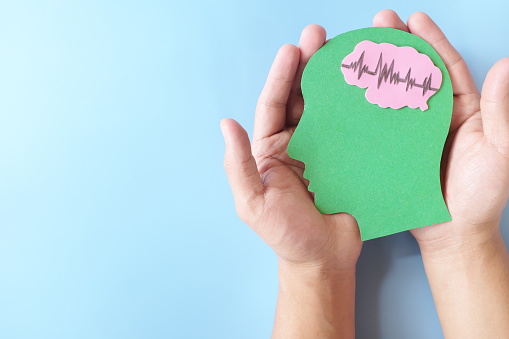
Causes of sleep deprivation
The causes of sleep deprivation are vast and varied, and can range from lifestyle choices to medical conditions. Some common causes include stress, anxiety, technology use, shift work, poor sleep environment, chronic illness, substance abuse and or sleep habits. Stress and anxiety can lead to difficulty in falling and staying asleep, as well as frequent waking during the night.
The overuse of technology, especially before bedtime, can also disrupt our sleep patterns by overstimulating our brains and making it harder for us to relax. Shift work, which requires us to work outside of typical daytime hours can also have a significant impact on our sleep quality as our bodies are not naturally programmed to sleep during the day.
Chronic illnesses, such as sleep apnea and restless leg syndrome can also cause sleep deprivation by disrupting our sleep patterns. Substance abuse including alcohol and drug use can also lead to sleep problems as well as poor sleep habits such as irregular bedtimes or lack of regular sleep schedule.
You might be wondering, are there any tips or tricks that can be used to free yourself from sleep deprivation and to improve our sleep quality. Worry much as there are some tips that can help you with your sleep.
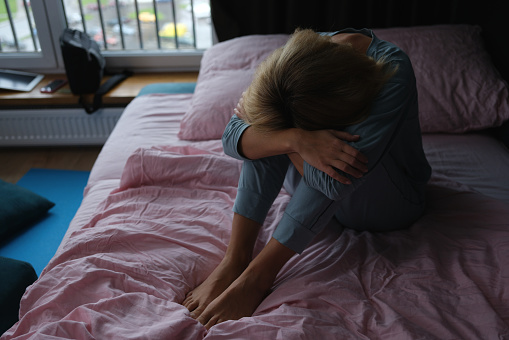
Tips for improving sleep quality,
Getting enough quality sleep is crucial for our overall health and wellbeing. If you;re experiencing sleep deprivation, don’t fret. There are many simple and practical tips you can follow to improve your sleep quality. Here some of the most effective strategies to help you get a better night’s rest:
- Stick to a consistent sleep schedule : Going to bed and waking up at the same time every day helps regulate your body’s internal clock and improve the quality of your sleep.
- Create a relaxing bedtime routine : Establish a calming bedtime routine, such as taking a warm bath, reading a book, or doing some light stretching, you signal to your body that it’s time to wind down.
- Make your bedroom sleep-conducive : Your bedroom should be cool, dark, quiet, and comfortable to help you get a good night’s sleep. Consider investing in a comfortable mattress and pillows, black-out curtains and a white noise machine to create a sleep-friendly environment.
- Limit exposure to screens before bedtime : The blue light emitted by electronic devices such as phones, tablets, and computers can interfere with your body’s production of the sleep hormone melatonin making it harder to fall asleep. Avoid using screens for at least an hour before bedtime.
- Limit caffeine and alcohol intake : Caffeine, especially when consumed in the late afternoon or evening can disrupt sleep making it harder to fall asleep and stay awake. Alcohol may help you fall asleep faster, but it can also interfere with the quality of your sleep.
- Exercise regularly : Regular exercise has been shown to improve the quality of sleep, but it’s important to avoid vigorous exercise close to bedtime, as it can actually make it hardert to fall asleep.
- Practice relaxation techniques : Relaxation techniques such as deep breathing, meditation and yoga can help you fall asleep faster and improve the quality of your sleep.
By following these tips, you can improve your sleep quality and get the restorative rest your body and mind need to function at their best.
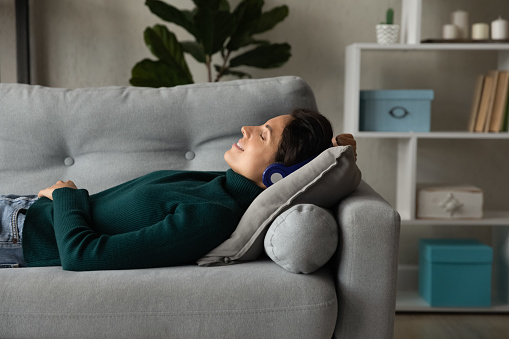
Conclusion
In conclusion, sleep deprivation had far-reaching impacts on our physical and mental health. From decreased cognitive abilities, to a weakened immune system to an increased risk of chronic diseases, the consequences of not getting enough sleep can be severe. The good news is that there are several factors that can contribute to sleep deprivation and that can be addressed to improve sleep quality. By making small changes to your habits, such as establishing a sleep schedule, reducing exposure to screens before bedtime and creating a sleep-conducive environment, we can take steps to ensure that we get the restorative rest that our bodies and minds need. Remember, a good night’s sleep is not a luxury, it’s a necessity for optimal health and well- being.











